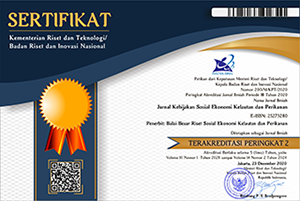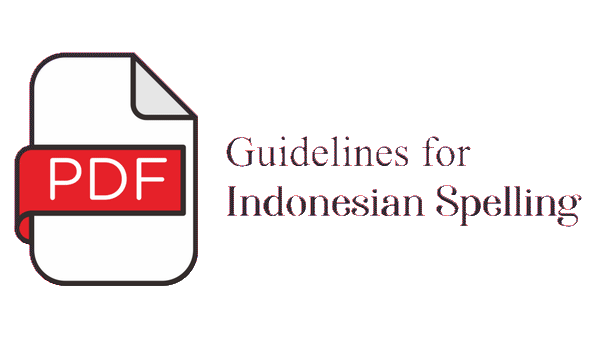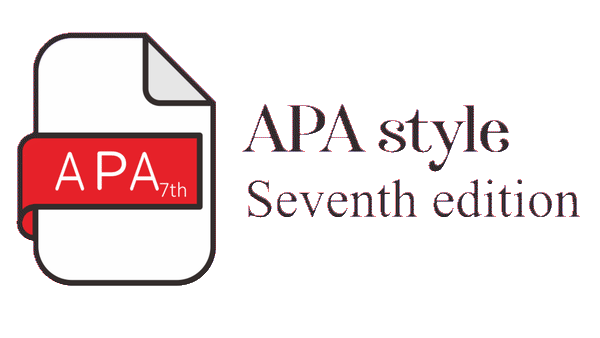KAJIAN DAMPAK KEBIJAKAN UNITED STATES GENERALIZED SYSTEM OF PREFERENCE (US-GSP) 2015 TERHADAP EKSPOR PRODUK PERIKANAN INDONESIA KE USA
Abstract
Sejak pertamakali diperkenalkan pada tahun 1970-an, Generalized System of Preference (GSP) telah diterapkan oleh negara-negara maju seperti United States of America (USA), Jepang dan European Union (EU). Meskipun bertujuan serupa, yaitu mendorong serta memfasilitasi perdagangan bagi negara-negara berkembang, namun pada penerapannya di masing-masing negara terdapat perbedaan pengaturan GSP – terutama terkait perihal daftar beneficiaries serta produk yang memperoleh fasilitas GSP. Tulisan ini bertujuan untuk mengkaji kebijakan US-GSP 2015 serta menganalisis besaran dampak kebijakan tersebut terhadap ekspor produk Kelautan dan Perikanan (KP) Indonesia di pasar ekspor USA. Untuk memperoleh informasi tersebut, maka dipergunakan model SMART yang dikembangkan oleh World Integrated Trade Solutions (WITS) untuk mengolah data perdagangan di USA pada tahun 2014, yang diperoleh dari database TRAIN-UNCTAD. Hasil simulasi menunjukkan bahwa rejim terkini GSP di USA (2015), jika dimanfaatkan, akan dapat mendorong peningkatan ekspor produk perikanan Indonesia ke USA, terutama untuk komoditas olahan.
Ever since it was introduced in the 70’s, the Generalized System of Preference (GSP) has been adopted and implemented by the developed countries such as United States of America (USA), Japan and the European Union (EU). Despite its similar purpose, which is to encourage as well as facilitate trade for the developing countries, its implementations in each adopting country have been very customized – especially concerning the beneficiary list and GSP product list. The purpose of this paper is to analyze the impacts of US-GSP 2015 implementation towards Indonesian Fisheries Export to the USA. The research was conducted using a SMART model – an economic model developed by the World Integrated Trade Solution (WITS) – to simulate the impacts of the trade policy using the TRAIN-UNCTAD database. The simulation showed that the latest US-GSP regime, if completely utilized by the Indonesian Exporters, could actually boost Indonesian Fisheries Exports to the USA, especially for the fish processing products.
Keywords
Full Text:
PDFReferences
Jammes, O., & Olarreaga, M. (2005). Explaining SMART and GSIM. The World Bank.
Laird, S., & Yeats, A. (1986). The UNCTAD Trade Policy Simulation Model. Geneva: UNCTAD.
Office of the United States Trade Representatives. (2012). GSP Eligible: All BDCs . Washington, D.C.: Office of the United States Trade Representatives.
Office of the United States Trade Representatives. (2015). GSP - Eligible Agricultural Product. Washington, D.C.: Office of the United States Trade Representatives.
Office of the United States Trade Representatives. (2015). GSP GUIDE BOOK. Washington, D.C.: Office of the United States Trade Representatives.
Pratomo, W. (2004). Teori Kerjasama Perdagangan Internasional. Dalam S. Arifin, D. E. RAE, & C. P. Joseph., Kerja Sama Perdagangan Internasional : Peluang dan Tantangan Bagi Indonesia. Jakarta: PT. Gramedia.
DOI: http://dx.doi.org/10.15578/jksekp.v6i2.4454
Indexed by:
---------------------------------------------------------------------------------------
Published by
Research Center for Marine and Fisheries Socio-Economic
in collaboration with
Indonesian Marine and Fisheries Socio-Economics Research Network
This work is licensed under a Creative Commons Attribution-NonCommercial-ShareAlike 4.0 International License.













3.png)











